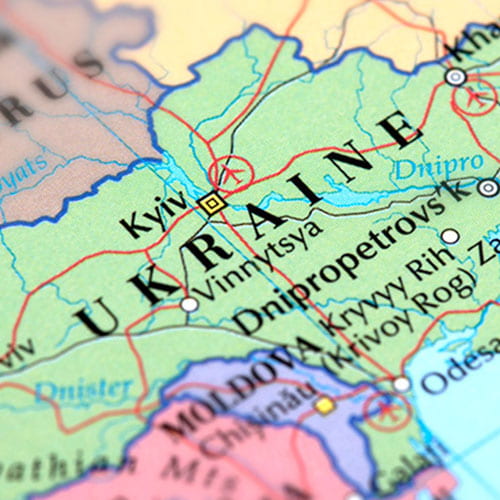By Joe Barnes
Bonner Means Baker Fellow
Russia’s invasion of Ukraine is moving into a new phase. Its likely initial goal — a quick decapitation strike against Kyiv and the installation of a pro-Moscow government — has proven an embarrassing and costly failure. Russian military performance has been, on balance, appallingly bad. The Ukrainian military, by contrast, has exceeded expectations with its tenacity and tactics. Russian losses in equipment and personnel, including high-ranking officers, have been crippling. (This includes the loss of the flagship of Russia’s Black Sea Fleet.) Moscow has, however belatedly, come to terms with the battlefield situation and is altering its strategy.
Russia has withdrawn its forces from near Kyiv, and appears to be focusing its combat power on more limited objectives in the South and East. This includes finally capturing Mariupol, a southeastern port city, where Ukrainian forces have fiercely contested Russian efforts to compel surrender. The Russians appear to be preparing for a substantial offensive in the Donbas region. Any such Russian effort there will be met with strong Ukrainian resistance. The Russian movement away from Kyiv, of course, also frees up Ukrainian forces for deployment elsewhere, notably Donbas.
NATO support for Ukraine remains firm, though short of direct military intervention. A number of member states, including the United States, are shuttling substantial amounts of weaponry to Ukraine. The United States, the EU and other states have imposed unprecedented economic sanctions on Russia, which is likely to see a sharp drop in GDP as a result. Support for Ukraine by the United States and others has only increased in the wake of credible reports of Russian war crimes against Ukrainian civilians. Beyond traditional U.S. allies, China is taking a largely pro-Russia stance while India is trying to strike a neutral position. The question of further sanctions on Russian exports of oil and gas remains unresolved, reflecting the importance of Russian hydrocarbon exports in international energy markets; Russia plays a particularly important role as a supplier of natural gas to Europe.
The role of Ukrainian President Volodymyr Zelenskyy in his country’s successful defiance of Russia is astonishing. He has not just proven to be an inspirational leader for the Ukrainian people. He has also shown himself to be a genius at generating international support for his beleaguered nation.
By contrast, Russian President Vladimir Putin’s grand ambitions to return Ukraine to Russia are in ruins. He has failed to install a puppet government in Kyiv; he has created even greater unity in NATO, and, indeed, an expansion of it, as both Finland and Sweden appear poised to join. And he exposed the once-vaunted Russian military to be a force of strategic miscalculation, tactical incompetence and repellent brutality.
But the war continues, trailing fresh horrors in its wake. There have been talks between Russia and Ukraine. But these discussions have, to date, led nowhere. The gap between the two sides remains wide. Given the shift in battlefield fortunes, Ukraine is understandably unlikely to grant substantial concessions to Russia. Russia, on the other hand, is still trying to create facts on the ground in Eastern Ukraine.
At this point, a complete victory in Ukraine is beyond Russia’s reach. Indeed, it is possible that the Ukrainian military — bolstered by high morale, effective battlefield tactics and a rising flood of weaponry — might inflict further defeats upon Russia. This raises the real prospect that, in the face of complete military collapse in Ukraine, Putin might order the use of weapons of mass destruction, including tactical nuclear weapons.
As with so much associated with the Ukraine war, Putin remains key. This ranges from the decision to launch an illegal and unprovoked invasion in the first place to his possible response in the face of further battlefield reverses. A Ukrainian victory represents no existential threat to Russia. But a decisive defeat may well represent an existential threat to Putin’s future. His popularity may be holding up, but he faces public protests. Further battlefield defeats, coupled with increasing hardship associated with economic sanctions, may bring about a shift in popular sentiment. This could portend unrest down the road and/or a palace coup to depose Putin. But no one should count on such an outcome.
In the short run, we should expect more heavy fighting. The eventual end of the war will depend on its course. There might be a formal negotiated settlement; there might be ragged ceasefire; there might be an ugly military stalemate; there might even be, as noted, a plunge into even more deadly conflict with Russian use of WMDs. The fortunes of battle remain decisive to the war’s final result.
Meanwhile, the butcher’s bill will rise daily.
